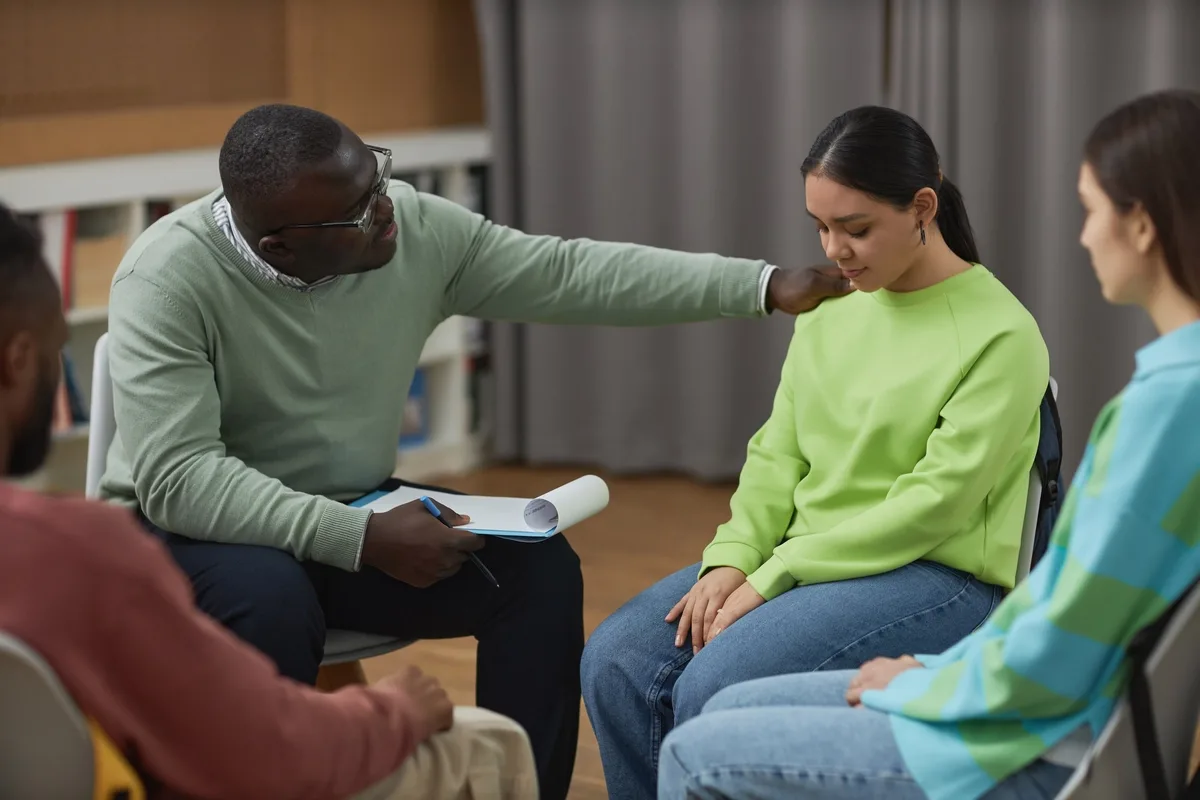24/7 Helpline:
(866) 899-221924/7 Helpline:
(866) 899-2219
Learn more about PTSD Rehab centers in Canoga Park
PTSD Rehab in Other Cities

Other Insurance Options

BlueShield

Holman Group

Ambetter
Beacon

Horizon Healthcare Service

Premera

AllWell

Magellan Health

Group Health Incorporated

Magellan

Carleon

Medical Mutual of Ohio

WellCare Health Plans

Excellus

Molina Healthcare

Health Net

UMR

Amerigroup

Regence

EmblemHealth

Wisdom Treatment Center
Wisdom Treatment Center is a private rehab located in Canoga Park, California. Wisdom Treatment Cent...

Looking Glass Counseling
Looking Glass Counseling is a private rehab located in Canoga Park, California. Looking Glass Counse...

Valley Women’s Center
Valley Women’s Center is a private rehab located in Canoga Park, California. Valley Women’s Center s...









